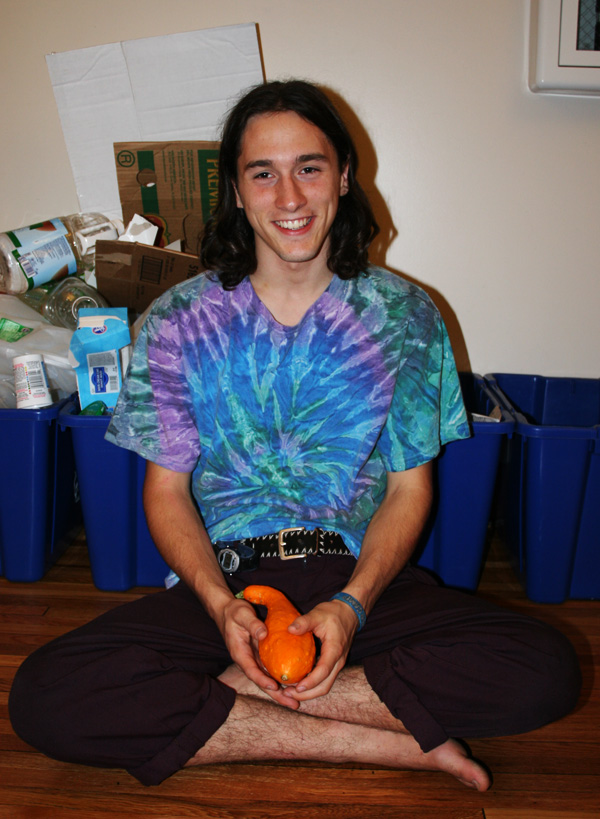When I heard Bill McKibben speak last year about 350.org and the impending effects of climate change, I was struck by the urgency of our situation and wanted to do something to help. The more I read, the more I realized that indeed, climate change is the cause of our generation. Universal health-care, civil rights, and reducing unemployment are all important, but they will also be irrelevant if we do not act now on the issue of climate change. We are playing God with a global ecosystem that we do not fully understand. What we do know is that change is happening too fast for most any macroscopic species to adapt to, and such a huge disruption will mean unprecedented changes in the way we live (that is, for those of us who do live – stay away from New York). In other words, one cannot overstate how imperative decisive action is.
Bummer, but what can we do? I’m glad you asked. I think that one of the biggest obstacles to stopping this is a change of mindset. In the past 50 years especially, we have become slaves to convenience. It seems that almost every new innovation comes in the form of increased specialization designed to reduce the amount of effort needed on the part of the consumer to perform some menial function. Don’t worry about cutting your own cheese slices; get Kroger’s “individually wrapped imitation pasteurized processed cheese food sandwich singles!” Don’t want to walk to the store? Save five minutes and drive!From television remotes to escalators to robot vacuum cleaners, it is clear that we have become lazy and accustomed to convenience. I’m not saying that these are all bad products, but rather that we no longer accept it as a given that to accomplish a task takes work. This is what needs to change. Our convenience has come at a great cost, both to the environment and to people around the world, which we rarely consider. This is one of the reasons we find ourselves in the bind we are in right now.
No one is going to invent something that solves the climate crisis in the blink of an eye (though that would be, dare I say, terribly convenient); it’s going to take concentrated actions by people all over the world. We must recognize that the cost of a TV that turns on via remote or the work we save by not unplugging our laptops or phone chargers when not in use is paid for and then some by the tons of coal burned every minute to keep power flowing to them. We need to change our lifestyles, and to do that means that we need to recognize the effects that our actions have on the world around us.
For example, on a piece about sustainable food on NPR, author/professor James McWilliams pointed out that an astronomical amount of energy goes into the production of animal products. He referred to a study that said the average US American eats 275 lbs of meat a year (think about that), and that if the average meat eater gave up meat just once a week, the energy savings would be equivalent to buying all of your food locally. A 2006 UN report detailed how livestock production accounts for 18% of all greenhouse gas emissions compared to 13% for all of transportation (cars, airplanes, etc). Both meat production and consumption are growing every year and are expected to double by 2050.
All of this is to illustrate how little we realize that our choices matter, and educating each other is crucial. All the little things we do add up, and they are not hard to change. But we also have to think big and make top down changes as well in the form of legislation and global treaties. So open your eyes to the world and help me to open mine. Don’t lose heart; we can take action and make our voices heard, because we can’t afford not to.



